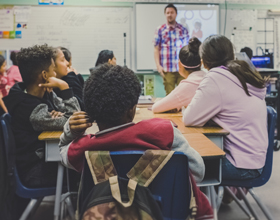
Research into the effectiveness of suicide prevention resources for high school students has received $666,281 in funding over five years through a National Health and Medical Research Council partnership grant, federal health minister Greg Hunt announced today.
The funding will support the suicide prevention research team at Orygen, The National Centre of Excellence in Youth Mental Health and the Centre for Youth Mental Health at the University of Melbourne, in trialling resources, developed as part of their suicide prevention studies, in high schools across Melbourne’s north-west.
Dr Jo Robinson, head of suicide prevention research at Orygen, said suicide was the leading cause of death among young people in Australia. “Suicide accounts for one-third of all deaths in people under 25,” Dr Robinson said. “Many more young people attempt suicide and more still live with suicidal feelings. It is vital that we find what works in suicide prevention so that future government investment is based on evidence.”
Dr Robinson said the project would evaluate a suicide-prevention program that includes educational workshops delivered to all participating students, case detection to identify at-risk students, and online cognitive behavioural therapy delivered to students at risk. “The resources we will be trialing aim to reduce suicide risk, improve risk recognition, and increase help-seeking among young people,” she said.
Alan Woodward, executive director of research and strategy at Lifeline said the organisation was enthusiastic to be a partner in the project.
“We know that youth suicide prevention is a priority,” Mr Woodward said. “This research will greatly support improved, evidence-based, youth suicide prevention through schools and communities.”
This project is a partnership between the University of Melbourne, the Department of Education and Training, and Lifeline.